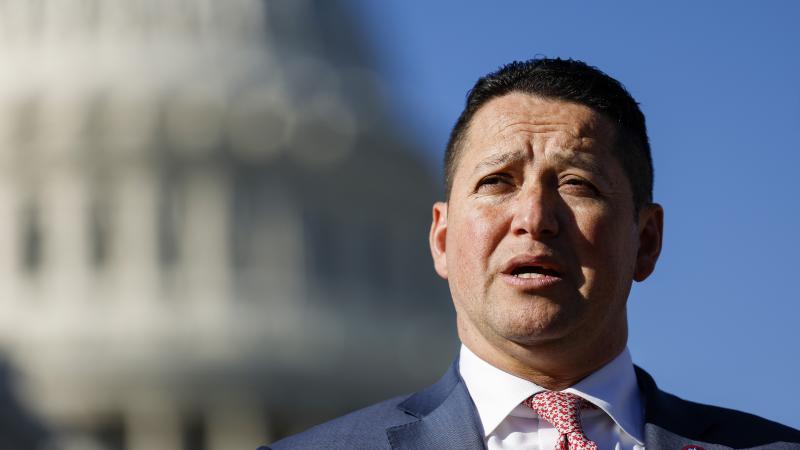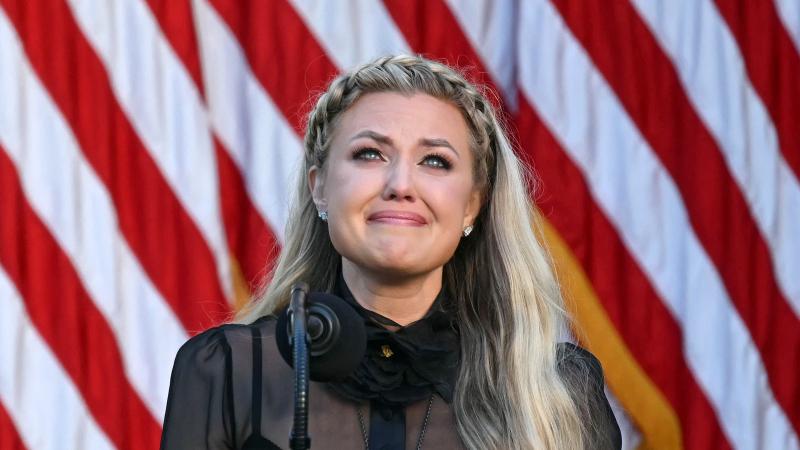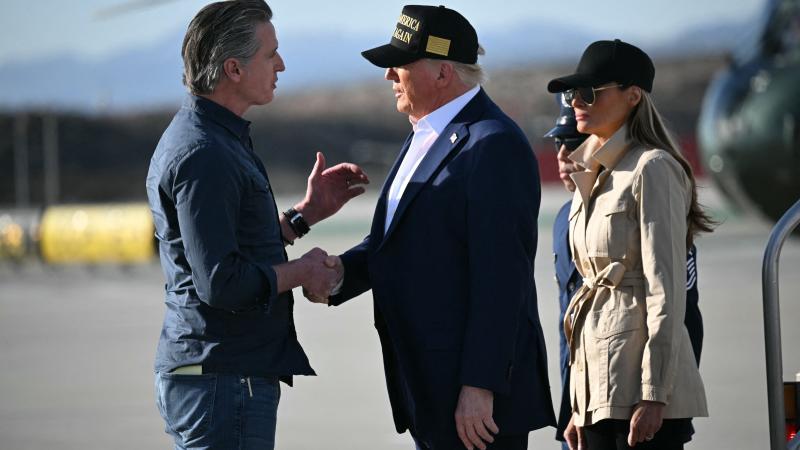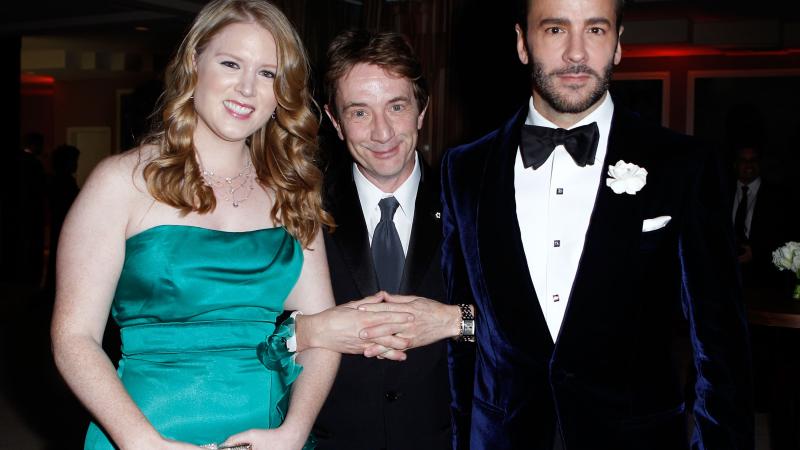Law students gone wild? Judges threaten to withhold clerkships over free speech shutdowns
University of California law school pledges to enforce rules against disruption, but student says administrators "privately claimed that they will not move forward with disciplinary action."
Elite law schools that give their student activists carte blanche to disrupt authorized campus events are under scrutiny from legal scholars and even judges.
Yale Law School told Just the News that it wouldn't punish students who continually disrupted a First Amendment event with the conservative Alliance Defending Freedom and liberal American Humanist Association earlier this month, just have a "serious conversation" with them.
The University of California Hastings College of Law has not answered queries on whether or how it will punish students for shutting down a debate with libertarian constitutional scholar Ilya Shapiro, which administrators already acknowledged violated campus policy.
Both events were hosted by Federalist Society chapters, a common target for protests and complaints by progressive law students. Just last fall, Yale Law allegedly threatened to torpedo a part-Cherokee student's bar passage for the perceived racism of his "trap house" party and its association with the Federalist Society.
Student disruptors could face career damage if identified. In email exchanges obtained by Slate legal writer Mark Joseph Stern, federal judges discussed how to respond to the incident at Yale Law, which has produced nine Supreme Court justices.
Judge Laurence Silberman of the U.S. Court of Appeals for the D.C. Circuit, whom The Wall Street Journal dubbed possibly the most influential non-SCOTUS jurist, asked peers to "carefully consider" whether such students "should be disqualified for potential clerkships."
His 2nd Circuit colleague John Walker told Silberman he "couldn't agree more," though U.S. District Judge Donald Graham said they should wait for "a finding that a student acted inappropriately at least by the institution of higher learning."
Former Harvard instructor Stanley Kurtz laid out a more immediate path for punishing Yale students specifically: the university's complainant-friendly "rules of discipline."
The first enumerated right in the code is "personal and intellectual freedom," and any faculty or student can file "a series of complaints" against student disruptors for "intentionally and substantially interfering" with the freedoms of "peaceable assembly" and learning, among other rights, Kurtz wrote in National Review.
The code means "we needn't depend on sniveling administrators to act," he said, suggesting the members of Yale's Federalist Society trigger investigations.
Yale will be forced to hold hearings and "will either uphold the university's tradition of free speech or expose itself as having abandoned that vaunted tradition," wrote Kurtz, a senior fellow at the Ethics and Public Policy Center. "Whatever happens will rivet America's attention.
Former federal prosecutor David Lat, founder of the influential legal publisher Above the Law, posted an open letter March 21 to Yale Law, where he serves on an alumni committee.
He urged newly reappointed Dean Heather Gerken to "strike fear into the hearts of free-speech opponents" on behalf of faculty who are too cowed to take on illiberal student activists, citing controversies over the "trap house" and Professor Amy Chua.
Noting his sources told him Gerken was "just across the hall" from the disruption, at an event that "had to be moved online" because of the noise, Lat wrote, "you didn’t come out to confront the protesters and tell them to quiet down ... this was your job."
The dean should have sent a school-wide email "offering a ringing affirmation of free speech and explaining how the protesters violated university free-speech policies," as did UC Hastings Dean David Faigman, Lat said. Gerken does students "no favors" by "sheltering them from difficult situations and differences of opinion."
Above the Law columnist Joe Patrice had a different view, claiming that disruptive protests are "the embodiment of free speech on campus" and that Judge Silberman had gone "full QAnon."
The Foundation for Individual Rights in Education pushed back on claims that the disruptions were minor.
"First-hand accounts" show the shouting and noise "largely prevent[ed] audience members from hearing what the speakers had to say," program officer Zach Greenberg told Just the News. "Allowing such illiberal tactics to silence speakers will only result in more threats to expressive rights and fewer speakers."
Yale Law spokesperson Debra Krozner told Just the News it had no comment "at this time" on whether it would identify student disruptors or on its response to Lat's letter. She didn't answer a followup on whether Kurtz accurately conveyed the university's complaint process.
UC Hastings didn't respond to Just the News or Inside Higher Ed queries about consequences for students who shut down Shapiro's debate, but a student told the latter that administrators had "privately claimed that they will not move forward with disciplinary action."
Shapiro provoked a campus mob for his admittedly "inartful tweet" criticizing President Biden's pledge to consider only black women for the current Supreme Court vacancy. Georgetown Law Center immediately put him on leave for the tweet even though he quickly deleted and apologized for it.
Protesters "screamed obscenities and physically confronted me, several times getting in my face or blocking my access to the lectern, and they shouted down a dean," Shapiro wrote in a Wall Street Journal op-ed demanding that UC Hastings put its money where its mouth is.
"You'd think that law students should have a particular appreciation for spirited and open engagement with provocative ideas," he said. "They've chosen a career that centers on argument and persuasion."
Though Chancellor Faigman said UC Hastings "will — indeed, must — enforce" its rules against disruption, Shapiro wrote, "don't hold your breath for anybody to be disciplined there or at Yale Law School."
The Facts Inside Our Reporter's Notebook
Videos
Links
- wouldn't punish students who continually disrupted
- shutting down a debate
- already acknowledged
- torpedo a part-Cherokee student's bar passage
- email exchanges
- produced nine Supreme Court justices
- The Wall Street Journal
- rules of discipline
- National Review
- open letter March 21 to Yale Law,
- Professor Amy Chua
- Above the Law columnist Joe Patrice
- pushed back on claims
- Inside Higher Ed
- "inartful tweet" criticizing President Biden's pledge
- Wall Street Journal op-ed
















